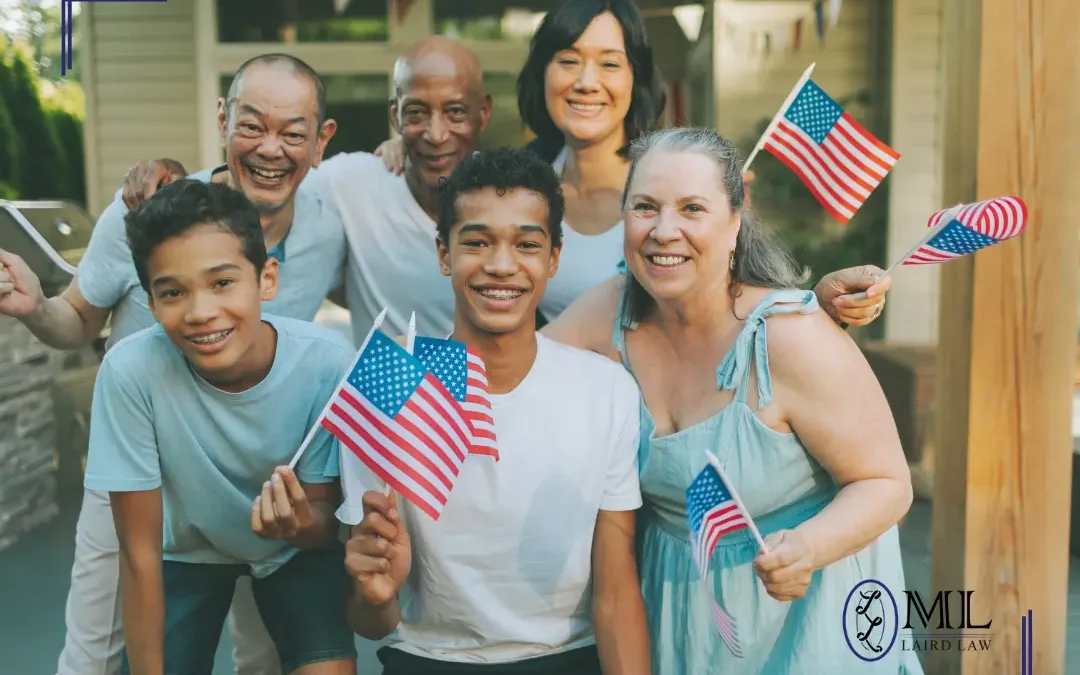Understanding family-based immigration might seem difficult, but it’s essential to bringing loved ones to the United States. The immigration process is filled with complex paperwork and contradictions— you may even face some emotional challenges. But the reward of reuniting with a loved one is always worth the effort! If the goal is sponsoring a family member or getting married and starting your own family, read on to learn more about your options for family-based immigration.
Understanding family-based immigration
Family-based immigration covers the majority of immigration to the United States. Family-based immigration is an important part of immigration reform because it helps keep families together! During this process, U.S. citizens, green card holders, and lawful permanent residents can sponsor family members who want to come to the U.S.
Who is eligible for family-based immigration?
There are a couple of categories when it comes to family-based immigration and these will determine eligibility and wait times. Determine if your case falls into the immediate relatives category or the family preference category.
Immediate relatives
The immediate relatives category includes spouses, parents, and unmarried children under the age of 21. Since there are no limitations on the number of visas in this category, it’s generally easier for close family members to immigrate to the U.S. without a long waiting period.
Spouses: CR1 and IR1
Children: IR2
Parents: IR5
Family preference
The family preference category applies to the more distant relatives of U.S. citizens and green card holders. Family preference can include both married and unmarried children of U.S. citizens and lawful permanent residents, and even siblings. However, there is a limited number of visas available in this category, which can lead to significant wait times, depending on the origin country.
How to bring a loved one to the U.S.
1. Determine eligibility for family-based immigration.
Find out if you and your loved one qualify for family-based immigration. Determine whether your relationship falls into the immediate relatives category or family preference category.
If your immediate family is already in the U.S., see if they are eligible for an adjustment of status.
2. File Form I-130, the Petition for Alien Relative with the USCIS.
Filing Form I-130 is the first step to bringing your family member to the U.S.! This form establishes a relationship between the sponsor and the applicant (you and your loved one).
3. Wait until your visa application is approved.
Depending on which family category your loved one falls under, you may have to wait a while until your petition is approved. After you file Form I-130 with USCIS, your petition will be reviewed along with supporting documents. Approved cases are sent to the National Visa Center (NVC) to be processed.
4. Prepare additional documents and fees.
As your visa is being processed by the NVC, they may request additional documents. Be prepared to fill out more forms and pay your fees. Once these requirements are met, the applicant will be scheduled for an interview at the U.S. embassy in their home country.
5. Ace the immigrant visa interview!
Make sure the paperwork is complete before the visa interview. It’s good to be mindful of the requirements as some of the documents may have been previously submitted and approved but have expired by the time of the interview.
Check that any criminal records, medical reports, and military certificates are still valid and report any changes in family status, including marriage, divorce, and death certificates. The applicant can avoid any complications by arriving on time and securing cell phones and electronic devices, as they may not be allowed in the interview or waiting room.
Why choose the immigration services at Laird Law?
The experienced immigration attorneys at Laird Law are committed to bringing your loved one to the U.S. While the journey can be a complicated process, it helps to have someone on your side to keep track of all the forms, deadlines, and changing regulations related to your case. At Laird, we provide personalized consultations and priceless assistance when it comes to visa applications. Our trusted legal representation centers on offering intensive, ongoing support for our clients, from progress updates to guidance for new sponsors.
Bringing a loved one to the United States is a huge achievement that requires a lot of preparation and patience. However, the legal representation you choose can have an even bigger impact on the final outcome. For a team that’s totally committed to your family-based immigration case, call Laird Law today!





